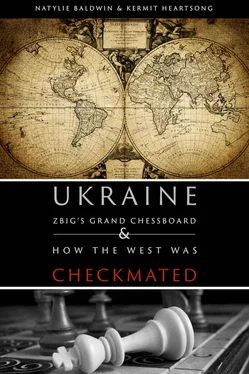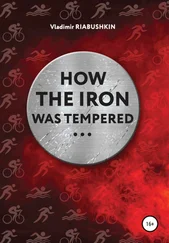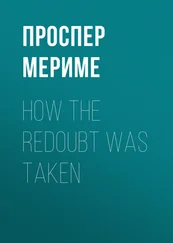Kermit Heartsong - Ukraine - ZBIG's Grand Chess Board & How The West Was Checkmated
Здесь есть возможность читать онлайн «Kermit Heartsong - Ukraine - ZBIG's Grand Chess Board & How The West Was Checkmated» весь текст электронной книги совершенно бесплатно (целиком полную версию без сокращений). В некоторых случаях можно слушать аудио, скачать через торрент в формате fb2 и присутствует краткое содержание. Год выпуска: 2015, Жанр: Политика, на английском языке. Описание произведения, (предисловие) а так же отзывы посетителей доступны на портале библиотеки ЛибКат.
- Название:Ukraine: ZBIG's Grand Chess Board & How The West Was Checkmated
- Автор:
- Жанр:
- Год:2015
- ISBN:нет данных
- Рейтинг книги:4 / 5. Голосов: 1
-
Избранное:Добавить в избранное
- Отзывы:
-
Ваша оценка:
- 80
- 1
- 2
- 3
- 4
- 5
Ukraine: ZBIG's Grand Chess Board & How The West Was Checkmated: краткое содержание, описание и аннотация
Предлагаем к чтению аннотацию, описание, краткое содержание или предисловие (зависит от того, что написал сам автор книги «Ukraine: ZBIG's Grand Chess Board & How The West Was Checkmated»). Если вы не нашли необходимую информацию о книге — напишите в комментариях, мы постараемся отыскать её.
Ukraine: ZBIG's Grand Chess Board & How The West Was Checkmated — читать онлайн бесплатно полную книгу (весь текст) целиком
Ниже представлен текст книги, разбитый по страницам. Система сохранения места последней прочитанной страницы, позволяет с удобством читать онлайн бесплатно книгу «Ukraine: ZBIG's Grand Chess Board & How The West Was Checkmated», без необходимости каждый раз заново искать на чём Вы остановились. Поставьте закладку, и сможете в любой момент перейти на страницу, на которой закончили чтение.
Интервал:
Закладка:
Moscow’s retaliation was lightening fast and led to a four day war in which Russia expelled the Georgian military from South Ossetia and the Kodori Gorge, Georgia's only remaining foothold in Abkhazia. Further, the war destroyed Georgia’s war-making apparatus (as supplied by the West). South Ossetia and Abkhazia were both recognized as independent states by Russia. Saakashvili, in response, would sever all ties with Moscow.
The Western press, in lockstep from CNN to the New York Times to the BBC, was quick to formulate their “diagnosis,” and they assigned blame to Russia for aggressively invading Georgia. The Western media immediately categorized the Russian invasion as a bid to, “reestablish the territories of the former Soviet Union.” The West and its attendant media then leveled charges continually against Russia, despite a glaring lack of supporting evidence and investigative feet on the ground. It was necessary for Western governments and their attendant media to collectively form a repulsion to anything that resembled actual truth. The Western narrative regarding Russia’s “invasion” of Georgia continues to this day in the face of investigative reports that have clearly stated otherwise.
One such report, conducted by an independent EU fact-finding mission and headed by Swiss diplomat and Caucasus expert, Heidi Tagliavini, that took the better part of a year to complete and numbered a thousand pages, disputed President Saakashvili’s statements and press releases (Bidder 2009). Whereas President Saakashvili had claimed that Georgia’s artillery bombardment of the South Ossetian capital of Tskhinvali was a preemptive strike directed against advancing Russian armored columns that were already in South Ossetia (Bidder 2009), the report’s findings came to the following conclusion:
Georgian claims of a large-scale presence of Russian armed forces in South Ossetia prior to the Georgian offensive on 7/8 [2008] August could not be substantiated by the mission. It was Georgia which triggered off the war when it attacked (South Ossetian capital) Tskhinvali. (Bidder 2009)
The findings of this report, however, have not, as of the release of this book, found their way to Western mainstream media outlets and, as a result, Western mainstream media continue to labor under the erroneous conclusion that Russia started the 2008 Georgian conflict.
The toll of the Georgian conflict left 133 civilians and 59 Russian peacekeepers dead. The Russian invasion and aerial bombardment of Georgia, according to the Financial Times , left 146 Georgian soldiers and 69 civilians dead (Chomsky 2008).
In the end, Saakashvili, like so many before him, was abandoned by the West, who lacked the will or the power to protect him. There would be no Western or NATO boots on Georgian ground. The Georgian debacle of 2008, however, would serve as a potent foreshadowing of things to come.
Saakashvili’s regime gradually collapsed, and in October of 2012 his party, the United National Movement, lost to the Georgian Dream coalition headed by billionaire Bidzina Ivanishvili.
Ivanishvili’s term in office would see a more pragmatic approach than his predecessor with regard to relations with Russia.
Ukraine II
The US mainstream news media is reaching a new professional low point as it covers the Ukraine crisis by brazenly touting Official Washington’s propaganda themes, blatantly ignoring contrary facts and leading the American public into another geopolitical blind alley.
— Robert Parry, Investigative Reporter, formerly with AP and Newsweek
ZBig’s Grand Chessboard strategy has long held to the stratagem that control of Ukraine was the key to unbroken US world domination, the suppression of Western European independence, the checkmate of Russian power projection across the Eurasian bridge (Ukraine), and the sabotage of Russian and Western European integration.
In light of the Grand Chessboard strategy, the events that have unfolded and that continue to unfold in Ukraine should be seen and understood clearly for what they are — a fundamentalist geopolitical ideology.
It is important that one be as accurate as the available data and evidence allow. Of further importance is the timeline or the order in which events have taken place in the Orange Revolution II — those known publicly at the time and those later discovered, that were covertly running in parallel.
An Offer You Can’t Refuse
With astonishing unanimity, NATO leaders feign surprise at events they planned months in advance. Events that they deliberately triggered are being misrepresented as sudden, astonishing, unjustified “Russian aggression.” The United States and the European Union undertook an aggressive provocation in Ukraine that they knew would force Russia to react defensively, one way or another.
— Diana Johnstone, “Tightening the US Grip on Western Europe: Washington’s Iron Curtain in Ukraine”
From May 31-June 3, 2012,world leaders met in Chantilly, Virginia, for the Bilderberg Meeting, as some would argue, to analyze the economic “fundamentals” of their elite agenda, to determine how those fundamentals would be efficiently marshaled in their best interest, and how to remove any and all obstacles to the successful implementation of those fundamentals.
Attendees at the Chantilly meeting included Royal Dutch Shell CEO Peter Voser; Royal Dutch Shell Chairman Jorma Ollila; BP CEO Robert Dudley; Massachusetts Senator John Kerry, now US secretary of state; Keith B. Alexander, director of the National Security Agency; Thomas E Donilon, then White House national security advisor; Michael J. Evans, then vice chairman of Goldman Sachs & Co; Donald E. Graham, then chairman and CEO of The Washington Post Company; Reid Hoffman, co-founder of LinkedIn; Henry Kissinger; John Micklethwait, editor-in-chief of The Economist ; Charlie Rose, interviewer/reporter; Martin H. Wolf, chief economics commentator for The Financial Times; Robert B. Zoellick, president of the World Bank, along with a host of other “VIPs” (Bilderberg.com 2012). The full list of the Bilderberg meeting can be found by Googling “Bilderberg Meeting May 31st — June 3, 2012.”
One of the foremost experts on the annual Bilderberg meetings is reporter Daniel Estulin, who provides via articles and books a general summation (presumably via inside sources), as to what exactly the fundamentals are for each of the Bilderberg meetings and how they will be attained.
A couple of the key economic fundamentals for the May 2012 Bilderberg meeting were: 1) hydrocarbons (oil, tar sands) and 2) export routes (Keystone XL, South Stream, Energy East). Certainly, while there were many whose economic interests were tied to these particular “fundamentals,” perhaps, Royal Dutch Shell, Suncor, and Cenovus Energy should be considered primary beneficiaries.
The attainment of the organizations’ hydrocarbon fundamentals would be achieved by discouraging, sabotaging, and bringing alternative sources to bear via new pipeline routes, with the intent of circumventing the EU’s Fuel Quality Directive (FQD). The FQD restricts imports of heavy crude such as tar sands oil, which US and Canadian companies have been intent on developing and exporting to the EU (Nelson 2014).
The primary obstacle to the implementation of the economic fundamentals, as determined at the meeting, was Russian President Vladimir Putin, due to his unwillingness to see Russia encircled by US and NATO military bases and his clear insistence on Russian sovereignty — the marshaling of Russia’s hydrocarbon resources and plans for a second natural gas pipeline to Europe. This second pipeline would circumvent entirely Ukraine and provide the EU with a more stable supply of gas. This would, of course, de-privilege the aforementioned Western hydrocarbon fundamentals, while potentially establishing a rapprochement between Western Europe and an independent Russia (Nelson 2014). The conclusion was that Putin would have to first be demonized, Russia brought to its knees economically, and then Putin removed via regime-change.
Читать дальшеИнтервал:
Закладка:
Похожие книги на «Ukraine: ZBIG's Grand Chess Board & How The West Was Checkmated»
Представляем Вашему вниманию похожие книги на «Ukraine: ZBIG's Grand Chess Board & How The West Was Checkmated» списком для выбора. Мы отобрали схожую по названию и смыслу литературу в надежде предоставить читателям больше вариантов отыскать новые, интересные, ещё непрочитанные произведения.
Обсуждение, отзывы о книге «Ukraine: ZBIG's Grand Chess Board & How The West Was Checkmated» и просто собственные мнения читателей. Оставьте ваши комментарии, напишите, что Вы думаете о произведении, его смысле или главных героях. Укажите что конкретно понравилось, а что нет, и почему Вы так считаете.











